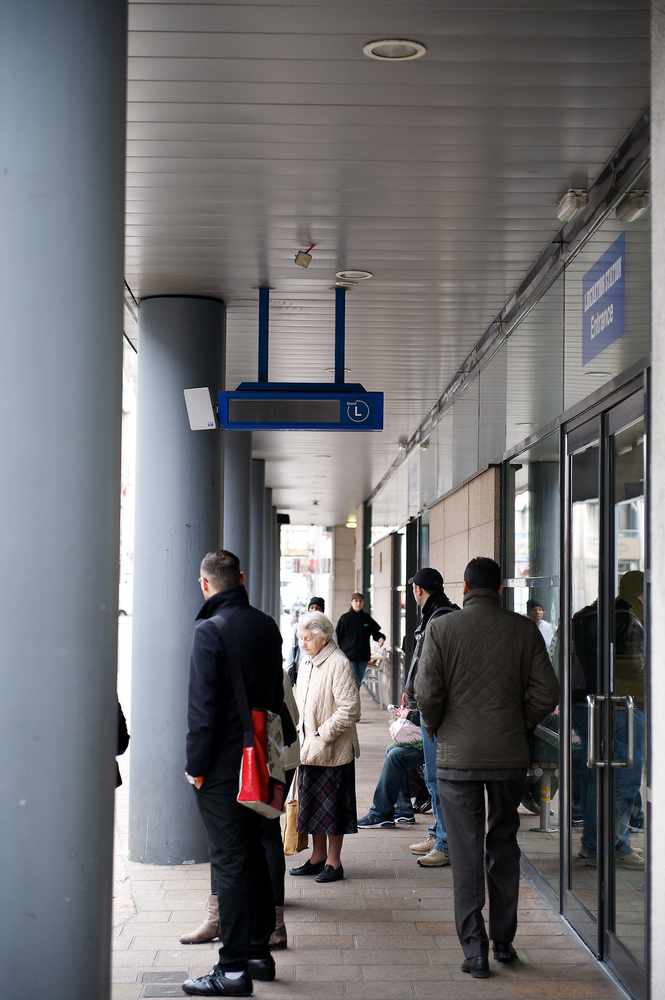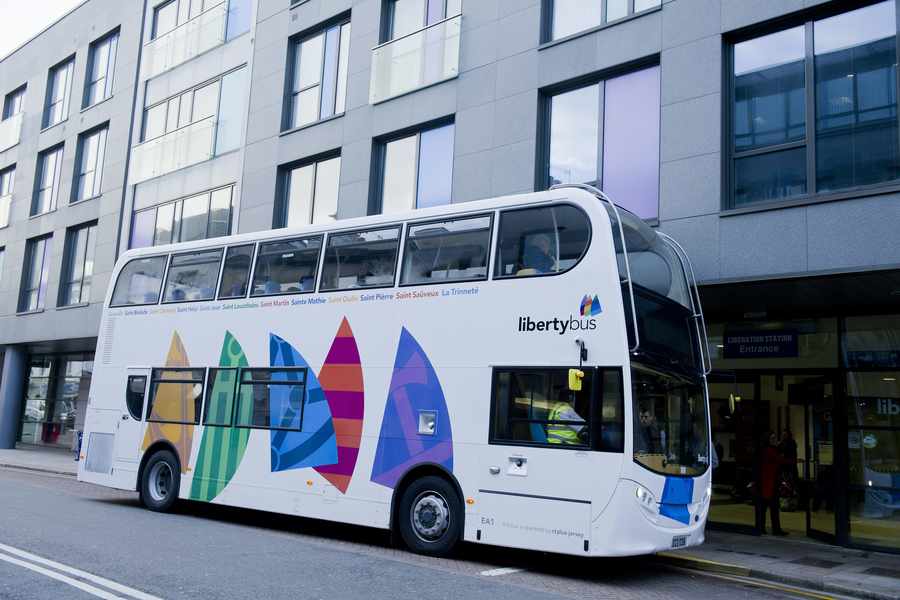The new fares will be in place from 1 March, increasing the cost of a journey from town to the Airport from £1.80 to £2, while passengers who use an AvanchiCard will pay £1.60.
The move has been made to encourage Islanders to use the company’s AvanchiCard system rather than cash, in an effort to speed up boarding on their network of buses.
Francesca Rotheram, marketing manager at LibertyBus, said: ‘We introduced the AvanchiCard as a method of payment on the bus service in mid-2013.
‘The system has been well received and now there are nearly 10,000 active unlimited, pay-as-you-go and student cards being used on the network.’
The company, which took over Jersey’s bus service in 2013, said that the fares for band A trips (shorter journeys) for people paying with cash will go up from £1.30 to £1.50, while fare band B will increase from £1.80 to £2. Children and students who pay with cash will also pay more, from 80p to £1 per journey.

Miss Rotheram said: ‘Although the cash fare is increasing, we have introduced big online top-up price reductions on our AvanchiCard Unlimited range.
‘We have reduced the online top-up price for monthly cards from £49 to £45 and the weekly card online top-up will be reduced from £19.50 per week to £15.
‘Bearing in mind that a huge percentage of bus travel locally is now paid for by AvanchiCard, this is good news for our existing AvanchiCard customers.’
Kevin Hart, the company’s general manager, said: ‘The results of the independent LibertyBus customer satisfaction survey in 2014 and lots of customer feedback indicated that there was a demand for one flat fare Islandwide.
‘As the first step towards this goal, we have changed the fare structure on the AvanchiCard pay-as-you-go.’
Transport Minister Eddie Noel said: ‘Overall, LibertyBus are looking at reducing the cost for those who pay with their weekly, monthly and annual cards.
‘One of the big advantages is it will be cheaper and it will speed up boarding.’
IT is alarmingly easy to get to work in the mornings during the school holidays. This week will have seen some drivers able to reduce the time of their normal commute more than half, with others enjoying a more leisurely morning at home before choosing to set off later than normal without the fear of having to sit in slowly-snaking traffic all the way into town.
Although we may not have quite yet reached the point of Jersey’s roads reaching maximum capacity, it can certainly feel that way at times, which is why we are constantly being encouraged to ditch the car in favour of the bus.
However, it has today been announced that bus fares are to rise. Journeys paid for in cash are to rise by 20p from next month in a bid by Liberty Bus to get more people to sign up to its pre-paid travel card system, the cost of which will be reduced. The company, which took over Jersey’s bus service in 2013, said the fares for band A trips (shorter journeys) for people paying with cash will go up from £1.30 to £1.50, while fare band B will increase from £1.80 to £2. Children and students who pay with cash will also pay more, from 80p to £1 per journey.
While the commercial incentives behind the scheme are plainly obvious, is it right that the occasional user or visiting tourist is made to pay more? A recent survey of bus users called for an Island-wide, flat fare, but any such fare, it seems, will only be available to those signed up to the pre-paid subscription cards.
However, regular car drivers, which the States no doubt wants to tempt out of their vehicles and on to the buses, are now faced with either committing to a long-term spending plan or paying an increased, one-off bus fare. Surely there are better incentives?
Of equal concern is the question of whether it is appropriate to propose an increase in bus fares when the price of fuel has dropped so much in recent months. Fuel suppliers, energy companies, airlines and ferry firms around the UK are reducing their prices, sometimes on an almost monthly basis. As this newspaper has already said on a number of occasions, companies in Jersey seem slow to pass on savings here for some reason and now, it seems, we must be one of the few communities in the British Isles facing a proposed rise in bus fares.
There are bodies out there who represent Islanders, from the Consumer Council and the CICRA to the various Scrutiny panels and the States itself; but how many of them are really ensuring that we are getting an appropriate and fair deal?


WE will shortly be arriving at ‘Bring It On’…
Or rather Brig-y-Don, as people in Jersey know it.
A new voice automated guide system used by Liberty Bus could not quite got to grips with Jersey place names when it was introduced in 2013.
The system, which announces the name of the stop the bus is arriving at, left passengers confused with its almost Del Boye-sque approach to language.
However, a spokeswoman for Liberty Bus said that it was a case of trial and error.
‘We’ve only really trialled it on one or two routes so far and it’s remotely controlled by the company that own the software. It will take a few months to perfect,’ Francesca Rotherham, marketing manager for Liberty Bus, said.
‘We’ve had some quite funny reports back from our customers, actually – I think one of the stops near Brig-y-Don sounds a bit like “Bring it on”.’
Other destinations include Les Land-ess Avenue (Les Landes Avenue), St Brelayeds College (St Brelade’s College) and Perkwidge (Perquage).
In a letter to the JEP at the time, Route 15 commuter Jo Mitchell said that she and her friend were left confused by the muddled accents and the voice declaring imminent arrival, arrival and then departure at every destination.
‘Please get someone with some intelligence to get on the bus and listen,’ she said. ‘Surely the pronouncements should have been listened to by a local person with regard to correct pronunciation before they were aired.’






